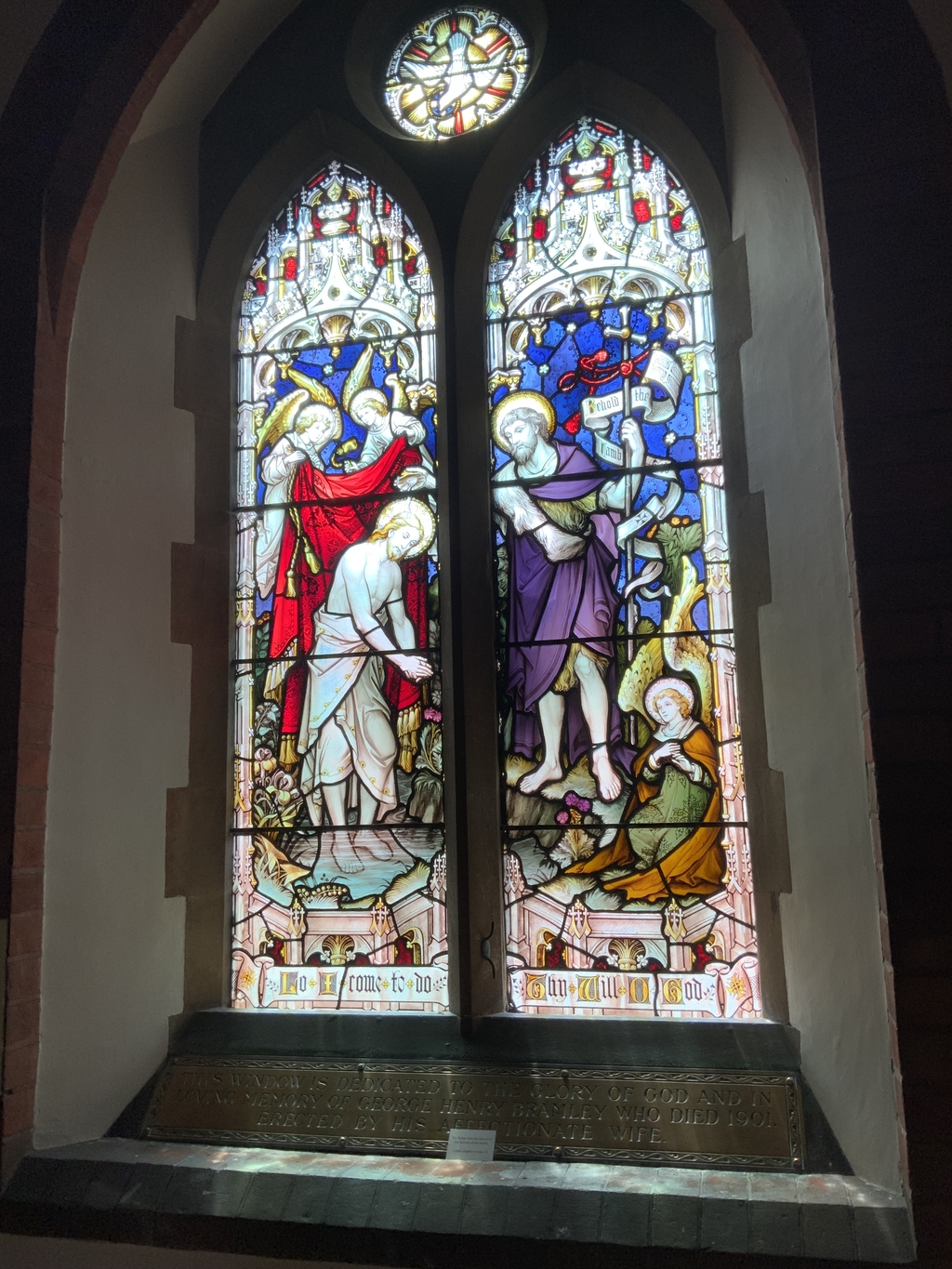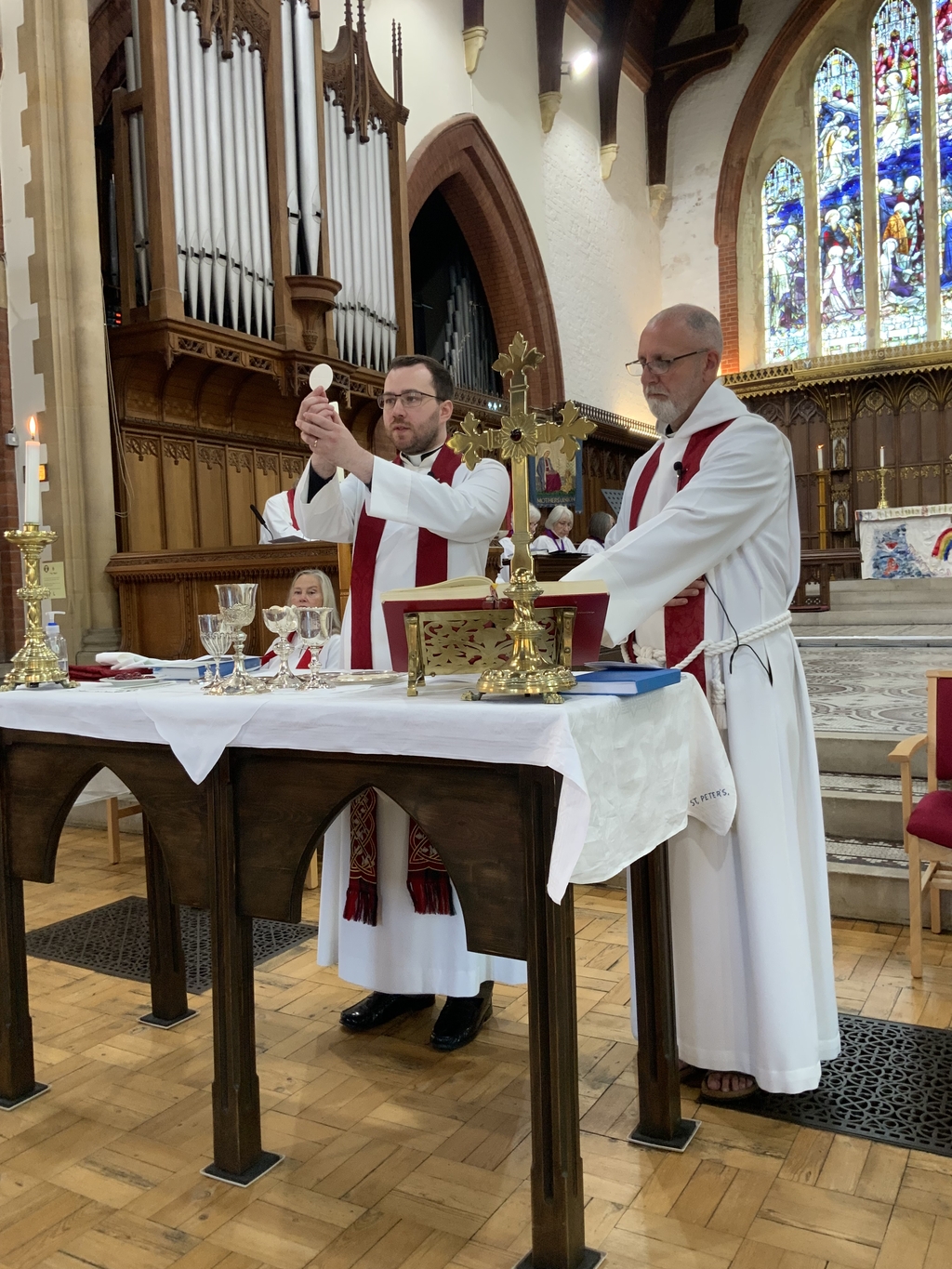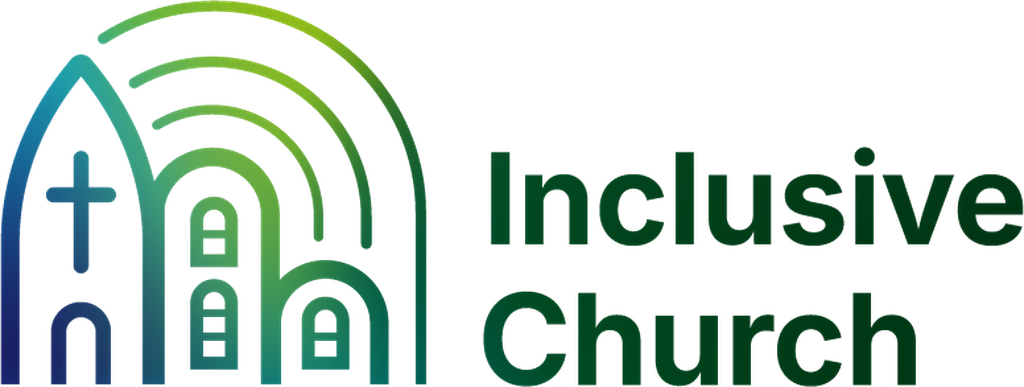We’re into a new church year. We’ve turned from Luke with the symbol of an ox, portraying the Jesus of power and strength, the bearer of burdens, towards Matthew with a human face, symbolic of revelation and intelligence. It portrays Jesus the teacher, the rabbi, and more than that: God revealed in a human face.
God had promised King David that his throne would be established forever (2 Sam. 7:16). David was from Bethlehem. His father’s name was Jesse. Our first reading, the lovely words of the prophet Isaiah, spoke of a shoot coming out from the stock of Jesse, a branch growing out of its roots. The spirit of the Lord would rest on him, the spirit of wisdom and understanding, of counsel and might, of knowledge and the fear of the Lord, in which he would delight. The fear of the Lord is not a scary fear, it’s nearer to being awestruck. The author of Matthew clearly connected Isaiah’s prophetic words to Jesus. John the Baptist connected Jesus with Isaiah’s words too.
We might think that John the Baptist was a very odd figure, dressed in camel’s hair with a leather belt around his waist, eating locusts and wild honey. But this is significant. Elijah the prophet was said to be a hairy man wearing a leather belt. Elijah was said to have been taken up into heaven, and the people expected him to return. His appearance was an indication that John was the prophet: his words were from God. Locusts were one of the few insects the Israelites were allowed to eat. Seemingly they’re quite nutritious. John the Baptist’s words about Jesus spoke volumes to the people, because they recognised them from the stories of the prophets, echoing those in Isaiah, Malachi and Daniel. What did he mean by ‘Repent, for the kingdom of heaven is at hand’? Daniel (2.44) said that the God of heaven would set up a kingdom which would never be destroyed. The message that the kingdom of heaven was at hand meant that the people must examine themselves and make sure that they were ready to face God, by changing their ways wherever necessary.
It’s a good thing to do, to give ourselves a spiritual health check every now and again. Advent is one of the seasons of the church year which lends itself to prayerful reflection as we prepare for the arrival of Jesus. We know that none of us is perfect. The idea isn’t to make us feel guilty, but to set us free: to allow God to help us to overcome our harmful tendencies, once we’ve identified them. It’s a good thing to pray for people who are unkind too, in the hope that they will repent and be saved.
Prophets are people who are given words from God to give to the people, mostly about the present time but also about the future. In the second week of Advent we mark the importance of the prophets who foretold the coming of the Messiah into the world. What’s in the New Testament reflects what’s in the Old Testament, and vice versa. Everything points to the coming of Jesus into the world, the first time as a baby in the incarnation, and to his second coming when the evil of the world will be gone forever. There’s a hope and a promise to be ready for, and to work towards, as we reflect on our lives this Advent.
I’ll leave you with the timeless words of Paul: May the God of hope fill you with all joy and peace in believing, so that you may abound in hope by the power of the Holy Spirit.’
Amen.
Julie Rubidge, Lay Minister











